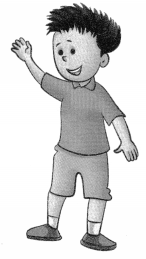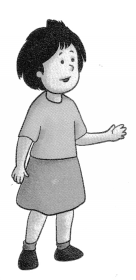 Definition: A noun is a part of speech that is used to name a person, place, thing, quality, or action. Examples: Mango, girl, boy, cat, etc. Any name given to a person, thing, animal or place is called a noun. Nouns are words used to refer to objects, places and living things. Some nouns also refer to feelings and emotions.
Definition: A noun is a part of speech that is used to name a person, place, thing, quality, or action. Examples: Mango, girl, boy, cat, etc. Any name given to a person, thing, animal or place is called a noun. Nouns are words used to refer to objects, places and living things. Some nouns also refer to feelings and emotions.
This grammar section explains English Grammar in a clear and simple way. There are example sentences to show how the language is used. https://ncertmcq.com/gender-of-nouns-exercises-for-class-5/
Gender Of Nouns Exercises for Class 5 CBSE With Answers PDF
Gender Of Nouns
Fundamentals
- The gender of a noun indicates whether it is a male or a female.
For example, boy, girl, hero, heroine, lion, lioness, etc. - A noun that denotes a male is called Masculine Gender.
- Masculine nouns are words for men, boys and male animals. For example:
Boy – Lion – Bull – Dog - A noun that denotes a female is called Feminine Gender.
- Feminine nouns are words for women, girls and female animals. For example:
Girl – Lioness – Cow – Bitch - A noun that denotes either a male or a female is said to be of the common gender. For example:
Child – Student – Friend – Pupil - A noun that denotes a lifeless thing, that is neither male nor female is called Neuter Gender. For example:
Book – Pen – Room – Tree
Presentation
Read the picture story.

Gender Exercise
A. Answer the following questions as per the story.
1. Write any two common gender nouns from the story above?
__________________ and ___________________
2. Is School a neuter or common gender noun? ___________
3. Who teaches in place of Mr. Bajaj? ___________
4. Why do the children feel happy after the class? ___________
Masculine And Feminine Gender Worksheets With Answers
Read the following bubbles to know more about the gender nouns.

Masculine and Feminine nouns for people:
Masculine – Feminine Masculine – Feminine
Father – Mother – Son – Daughter
Brother – Sister – Nephew – Niece
Uncle – Aunt – Master – Mistress

Making feminine nouns by adding a syllable (-ess, -ine, trix, -a, etc):
Masculine – Feminine – Masculine – Feminine
Author – Authoress – Count – Countess
Poet – Poetess – Abbot – Abbess
Negro – Negress – Traitor – Traitress
Executor – Executrix – Testator – Testatrix

Masculine and feminine nouns by using an entirely different word:
Masculine – Feminine – Masculine – Feminine
Boy – Girl – King – Queen
Drake – Duck – Monk – Nun
Buck – Doe – Dog – Bitch

Masculine and Feminine nouns that take a suffix or a prefix:
Masculine – Feminine – Masculine – Feminine
Man-Servant – Maid-Servant Bull-Calf – Cow Calf
He – Goat – She – Goat – Landlord – LandLady
Peacock – Peahen

Masculine and feminine nouns by using an entirely different word:
Masculine – Feminine – Masculine – Feminine
Rooster – Hen – Drake – Duck
Bull – Cow – Gander – Goose
Fox – Vixen – Stallion – Mare
Collective nouns, even if they refer to living beings, are used as neuter-nouns. For example: The army is doing its task. In this sentence the noun ‘army’ refers to living-beings. But it is used only as neuter-noun.
Common Gender Nouns:

Child, Servant, Enemy, Neighbour, Cousin, Pupil, Student, Friend, Worker, Employee, Teacher, Minister, Walker, Doctor, Painter, Musician, Singer.
Neuter Nouns:

Pen, Pencil, Car, Bus, Books, Tress, Computer, Television, Telephone, Speaker, House, Building, Box, Street, Lake, Ocean,Words, Train, Road
Nouns Gender Exercises for Grade 5 With Answers CBSE Pdf
A. Match the male noun with its corresponding female noun.
- Duke – Empress
- Deer – Vixen
- Bull – Mistress
- Tom cat – Duchess
- Fox – Doe
- Emperor – Witch
- Master – Cow
- Wizard – Cat
a. Objects noted for their power, strength and violence are sometimes used as masculine gender nouns. The sun, summer, time, death etc… are masculine gender nouns.
b. Objects noted for their beauty, gentleness and grace are sometimes used as feminine gender nouns. The moon, the earth, spring, charity etc… are feminine-gender nouns.
B. Change the nouns in bold from feminine/masculine to masculine/feminine. The first one has been done for you.
1. My uncle visits his nephew every weekend.
My aunt visits her niece every weekend.
2. The lady has several drakes on her farm. ______________
3. The daughter is more talkative than her mother. ______________
4. Does any actor like to play the role of the prince? ______________
5. Their queen is a widow. ______________
6. The manager is still a bachelor. ______________
7. In the movie, the tiger was killed by the hero. ______________
8. His son-in-law is a steward. ______________
9. The count has one brother. ______________
10. The author is writing a book about an emperor. ______________
C. Change the nouns in bold from masculine to feminine.
1. The bridegroom spoke to the priest. ______________
2. His brother works as a waiter. ______________
3. The dog barked at the milkman. ______________
4. A cock was killed by a fox. ______________
5. The manservant has worked many years for the duke. ______________
6. Her husband is a conductor. ______________
7. He was a postman before he became a postmaster. ______________
8. The lad wants to be a monk. ______________
9. The sultan owns a stallion. ______________
10. Her father-in-law is a landlord. ______________
D. Identify the following nouns as Common or Neuter and arrange them into different columns.
| Child | Library | Neighbour | Table |
| Gown | Servant | Castle | Teacher |
| Books | Trees | Pen | Musician |
| Friend | Visitor | Doctor | Minister |
| Singer | Flock | Television | Speaker |
| COMMON NOUNS ______________________ ______________________ ______________________ ______________________ |
NATURE NOUNS ______________________ ______________________ ______________________ ______________________ |